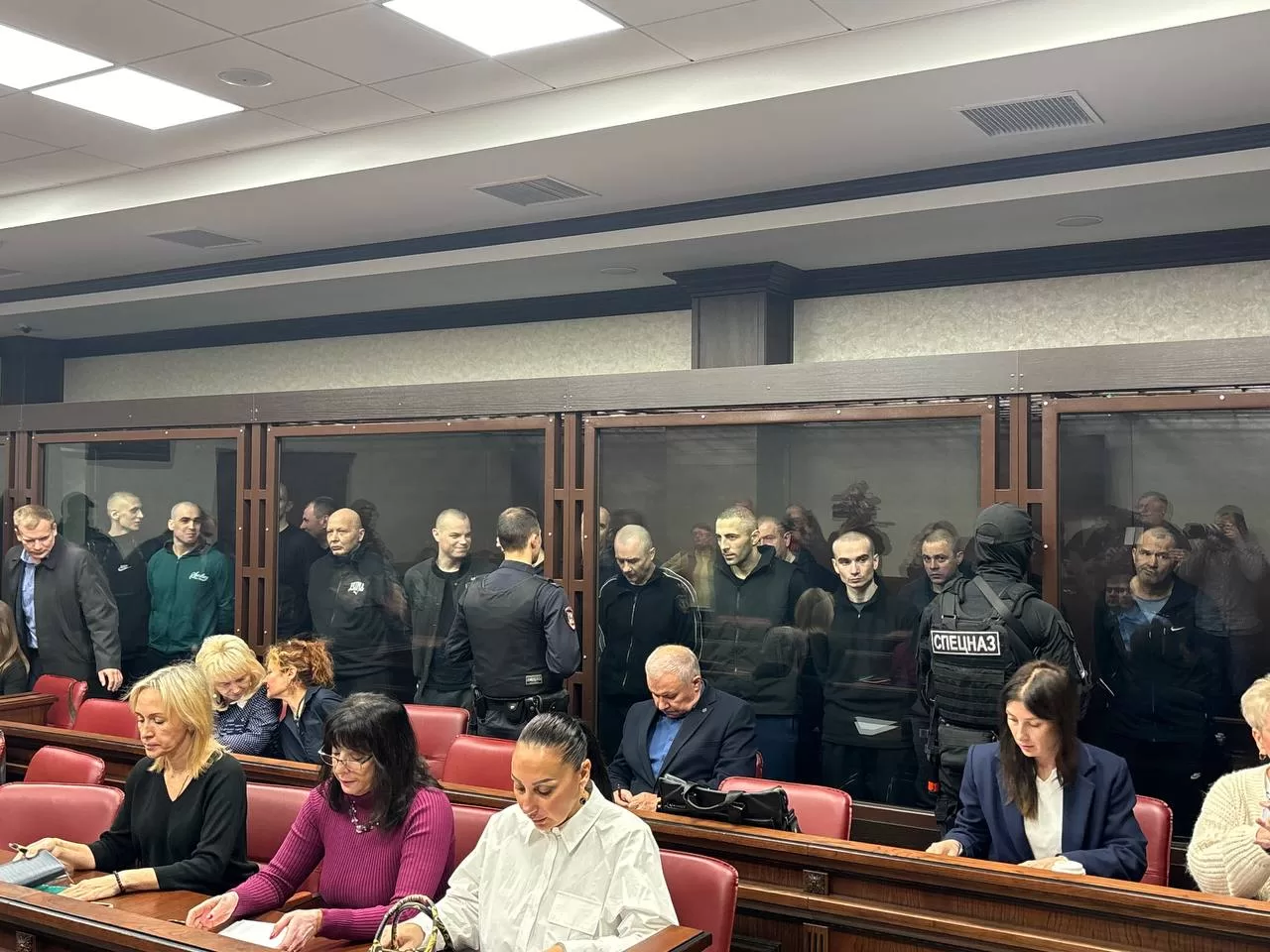The Southern District Military Court in Rostov-on-Don sentenced 15 Ukrainian prisoners of war from the Aidar Battalion to terms ranging from 15 to 21 years in a maximum-security penal colony.
Ukrainian military personnel were found guilty of participating in the activities of a terrorist organization, violently seizing power, and undergoing training for terrorist purposes.
What sentences were given to Ukrainian military personnel?
- Dmitry Fedchenko – 15 years in a maximum security penal colony;
- Andrey Sholik, Vitaly Krokhalov and Vyacheslav Baiduk – 16 years in a maximum security penal colony;
- Vladimir Makarenko and Igor Gayokha – 18 years in a maximum security penal colony;
- Nikolai Chuprina, Taras Radchenko, Semyon Zabayrachny, Sergei Nikityuk, Alexander Tarants and Vladislav Yermolovskiy – 20 years in a maximum security penal colony;
- Vitaly Gruzinov, Roman Nedostup and Sergey Kalinchenko – 21 years in a maximum security penal colony.
Two women, doctors Lilia Prutyan and Marina Mishchenko, were also involved in this case, but they have already returned to Ukraine as part of a prisoner exchange. The charges against them have been separated into a separate case. The charges against Yevhen Pyatigorets have also been separated into a separate case, and the prosecutor’s office has not yet filed a motion for sentencing.
The charges against each of the prisoners were based solely on the fact that they served in the Aidar Battalion; none of the defendants were charged with specific war crimes. The prosecutor’s office labeled the activities of not only regular Aidar soldiers, but also their drivers and even medics as “criminal,” since providing medical care to the soldiers “ensured the unit’s combat effectiveness and its readiness to carry out its assigned missions.”
During their trial, the Ukrainians reported being tortured during their investigation in the self-proclaimed Donetsk People’s Republic (DPR). In October 2024, the trial hearings were completely closed to the public and the press, citing “widespread publicity” and “threats to those involved.”
